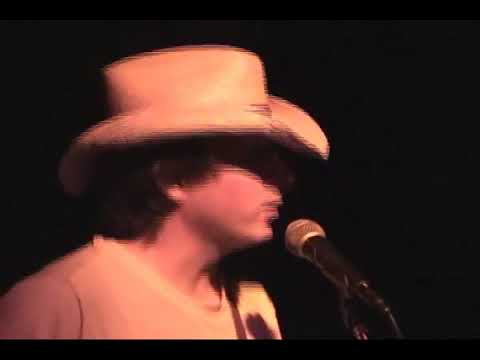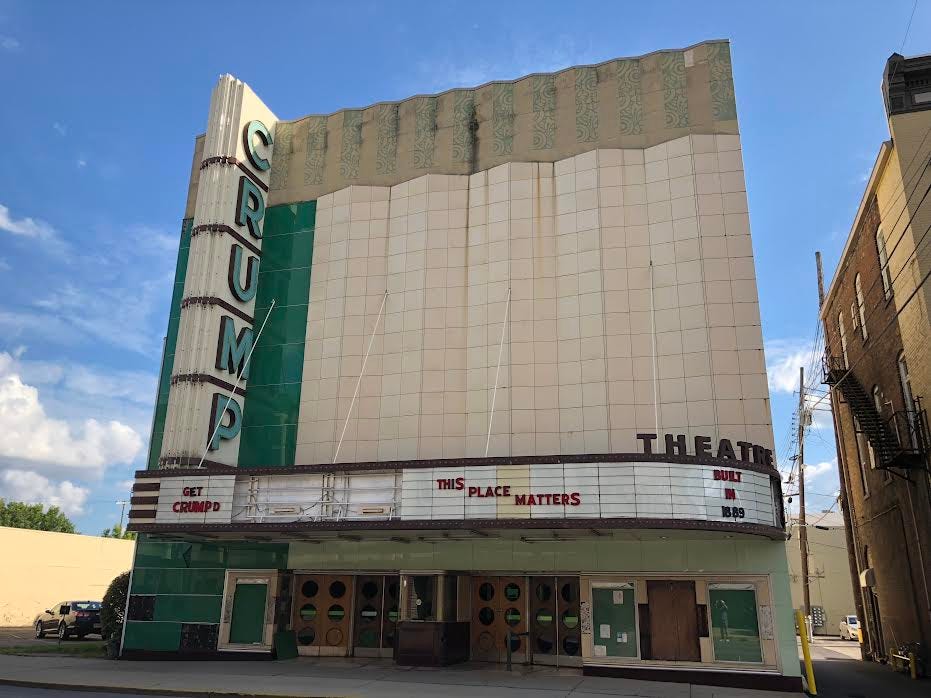Nearly ten years ago, on March 16th, 2013, my wife and I got off an airplane in Los Angeles. We were waiting on line for our rental car and two guys in Hells Angels vests were standing right behind us. I assumed they had left their choppers back wherever they were from and figured they’d just drive around in a car like the rest of us. I recall quite specifically that at that moment just as that thought crossed my mind, I took out my phone to make a note about the bikers waiting to rent a hatchback and I saw the news that Jason Molina had died. I spent the next few hours driving toward the desert. I didn’t put on any of his music. It just didn’t feel right to me. Molina wasn’t of the west or the desert, I reasoned. He was from the middle of the country, Ohio-born and educated, but tied to Indiana. Mainly to Bloomington and the label Secretly Canadian that put out the bulk of his albums, but also to Indianapolis. He died there at the age of 39.
I never really realized until today that his death lined up so close to the anniversary of another milestone in Molina’s story. Almost exactly ten years to the day before his passing, Molina and his band put out what I and many others consider his masterpiece, The Magnolia Electric Co. I say “his band” because Songs: Ohia was a vehicle for Molina’s music and the cast of musicians he worked with was never quite set in stone. That, and there’s the whole thing about how after the 2003 album, which came out 20 years ago today, Songs: Ohia ceased to be and Molina started releasing his songs with a full band under the moniker of Magnolia Electric Co. The album marked the end as well as a beginning.
Trying to remember a week since I was able to stream anything on my phone that passed without a listen to The Magnolia Electric Co. is hard to recall. I’m not much of a fan of claiming favorites, but I’m fine admitting there aren’t many albums I connect to on such a personal level, and I suppose in the grand scheme of things that counts for more than putting it in some arbitrary ranking that tends to fluctuate according to my mood. On a musical level, it captures this moment in time to me when people were still calling things alt-country and tried to fit Molina’s work under that umbrella. Wilco had already transcended the silly term two years earlier with Yankee Foxtrot Hotel and Ryan Adams was close to pop star level. I started noticing a lot of bands that didn’t quite know how to play a steel guitar have one up on stage with them. A lot of guys from Brooklyn wore western shirts and cowboy boots. It was confusing. If I hadn’t already been familiar with Molina’s work, I probably wouldn’t have given the album a shot in the first place given all of that.
Writing about a beloved piece of art is always tough. I try to think about everything I’ve ever read or all the conversations I’ve had about it and I ask myself if there’s truly a point to me adding anything. I didn’t think there was much I could say about The Magnolia Electric Co. that hadn’t been said before, and I could pretend that the 20-year mark shouldn’t matter, but the number really does represent enough passing of time that the art in question has definitely aged. It’s from another generation. And that’s fitting because Molina, especially on this album, always felt like he was from another time as well. The America he’s singing about is post-Springsteen. Everybody that was born to run did just that as best they could. All the small towns were abandoned a decade or so earlier, the factories were finally shut down, the jobs were few, and the people left behind did what they could to scratch by or escape without actually leaving. Molina’s songs on this album are Rust Belt Noir. That’s the easiest way to describe them. It’s the soundtrack to walking alongside train tracks you can barely see because they’re covered in weeds since nothing has rolled over them in years. It’s half-started suburban developments that will never be completed. You hear these songs and you picture a place where the biggest employer in the town is the local quarry, the only thriving legal business is Dollar General, and the only places to go are the bar or some parking lot after dark. It’s bleak. Molina didn’t hide from that. He made it sound incredible, but he didn’t sugarcoat a thing It was what it was and it remains that today.
When I was writing my last book, I looked to The Lonely City by Olivia Laing. I wanted to explore a similar theme except in the American suburbs. I’m constantly fascinated by what a lonely society we live in and catch hints of it all the time. At some point, while I was writing the book, I found myself in Louisville, KY. Coincidentally, I was there interviewing Will Oldham, an artist to whom Molina is often compared. Whether you think that’s fair or not I’ll leave that to you. But I’d been wrestling with the big question I had to answer for myself and that I knew people would ask me if they read the book: what was a suburb? I thought I’d had a pretty good handle on the answer, but then I found myself unable to sleep early one morning. I got dressed, got in my rental, and drove out of my hotel parking lot before the sun came up. I started driving north. I had a day to kill so maybe I’d end up in Ohio or maybe I’d go into Indiana. In grand Me fashion, I did both. Louisville to Cincinnati, Ohio to Columbus, Indiana, and then back by dark.
The thing about all three particular states I drove through that day is they all blur the lines between north and south, Rust Belt and bluegrass. Heartland and big cities. Suburbs and farm towns. There’s that, and all three states have ties to the Jason Molina Story. And by dedicating six or seven hours behind the wheel, one could really get a better sense of exactly how of a specific place he was. It started to really come together in my head that Molina, especially on The Magnolia Electric Co., was to this little part of the country what certain artists are to a specific city, neighborhood, or region. The way Flanner O’Connor is attached to Southern Gothic or how the Wu-Tang Clan’s sound and lyrics could only have been dreamt up in a place like Staten Island. Molina wrote songs about people and stories from the very middle of the country the way Larry McMurtry wrote about Texans or John Cheever got sad W.A.S.P.s along the East Coast. Yet the closest connection, I always felt, was Springsteen. He doesn’t add the same bombast—the opposite, in fact. Molina’s music is melancholy, but he gives the people in his songs the littlest bit of pride and hope—even if you, the listener, know that’s going to be snapped away from them at some point after the track is over.
When I made it back to Louisville just before nightfall, I had dinner alone and felt the need to drive around a little more afterward. I’d found myself thinking about Molina throughout the day, but I hadn’t actually listened to anything by him. I pulled up The Magnolia Electric Co. on my phone and turned the dial on the rental car stereo up to a point that some might consider uncomfortably loud, but those people weren’t in the car with me so it didn’t matter. The first track, “Farwell Transmission,” started and I began my aimless drive in the dark. At some point just down the road I hit some blinking red lights and put the car in park as a train passed mournfully by. At that point, it was the third song on the record, “Just Be Simple.” Molina starts by singing “You never hear me talk about one day getting out. Why put a new address on the same old loneliness?” The train finally passed and I kept driving, Molina’s music the only thing keeping me company. That was when it dawned on me that I had an answer to the question I was trying to find for my book. I realized in that particular section of the country that felt like it could be anywhere, a place that looks like it could be anywhere else in America in the darkness save for a few details like the flatness of the land or the particular growth or animals native to the region that you might see in your headlights, that the answer I’d been looking for about what makes one place in American different from the rest is that question has become irrelevant. It’s all the same now. America is one big, lonely place filled with chain stores, big towers, and people who don’t talk with each other. “It’s been hard doing anything,” just like Molina sings on the fourth track, “Almost Was Good Enough.” There are glimmers of hope and pride here and there, but you get the sinking feeling they could get snatched away at any second. Jason Molina understood that 20 years ago.






Rust Belt Noir! Lovely remembrance and study of a great artist, album, and region. "Farewell Transmission" is a song for the ages.
This is a terrific piece, part memoir, part encyclopedic tour through decades of American music. I printed it, for history's sake.
Did you know Will Oldham was in John Sayles' "Matewan"? As was the miraculous bluegrass diva, Hazel Dickens. She sang "Fire in the Hole"—still raises the prickles on the back of my neck.